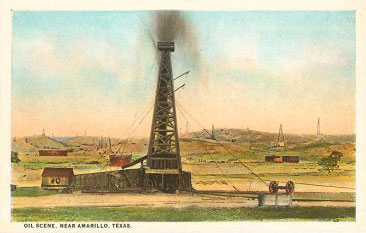Posted on September 29th, 2008 at 4:55 pm by Steve

Joshua Holland has a nice piece up on AlterNet looking at the financial meltdown (it’s from a week ago, so some of it is already “inoperative,” but – as John McCain might say – the fundamentals are sound). He summarizes the so-called “bailout” plan like this:
We’re splitting an oil well with the Big Boys on Wall Street: They get the oil, we get the shaft.
He gives a good analysis, and it’s worth reading. I found this section to be particularly apt:
The proximate cause of the financial system’s meltdown is not all that hard to grasp. The decades-long supremacy of the ideology euphemistically called “free trade” resulted in capital being unmoored from national economies and freed to move around the world with few limitations (under the imperative of government not “intervening” in markets). Unconstrained by borders and investment rules, those dollars, yen, euros and what have you roamed the planet seeking a better rate of return. Investors moved in packs, rushing lemming-like to whatever hot up-and-coming market the Economist was writing about in a given month, and a series of bubbles resulted.
Those bubbles made some people incredibly rich, and hurt others badly.
[…]
Here in the United States, the trend of deregulation culminated in 1999 with the death of the Glass-Steagall Act, the New Deal-era legislation that had forced financial institutions to choose between investment banking and commercial lending.
Of course, if you read Artifacts (the collection I produced for Christmas of 1999), you would have learned all about this at the time, starting on Page 70 in “Senate Clears Financial-Services Overhal; Late Requests for Favors, Fixes Precede 90-8 Vote on Landmark Measure,” by Michael Schroeder, from the Wall Street Journal:
By stripping away restrictions in the Glass-Steagall financial-services law — which prohibited the mixing of banking, securities and insurance activities — the overhaul is a windfall for financial industries, paving the way for a new world of financial supermarkets offering one-stop shopping for services ranging from checking to credit cards, foreign exchange, insurance, mutual funds, mortgages and auto loans.
Of course, “no one could have predicted” that the house of cards would fall down, right? Hm.
Perhaps you’d have found further illumination from another selection in Artifacts, this one from Kurt Vonnegut’s Breakfast of Champions:
Here is how the pirates were able to take whatever they wanted from anybody else: they had the best boats in the world, and they were meaner than anybody else, and they had gunpowder, which was a mixture of potassium nitrate, charcoal, and sulphur. They touched this seemingly listless powder with fire, and it turned violently into gas. This gas blew projectiles out of metal tubes at terrific velocities. The projectiles cut through meat and bone very easily, so the pirates could wreck the wiring or the bellows or the plumbing of a stubborn human being, even when he was far, far away.
The chief weapon of the sea pirates, however, was their capacity to astonish. Nobody else could believe, until it was much too late, how heartless and greedy they were.
So it goes.